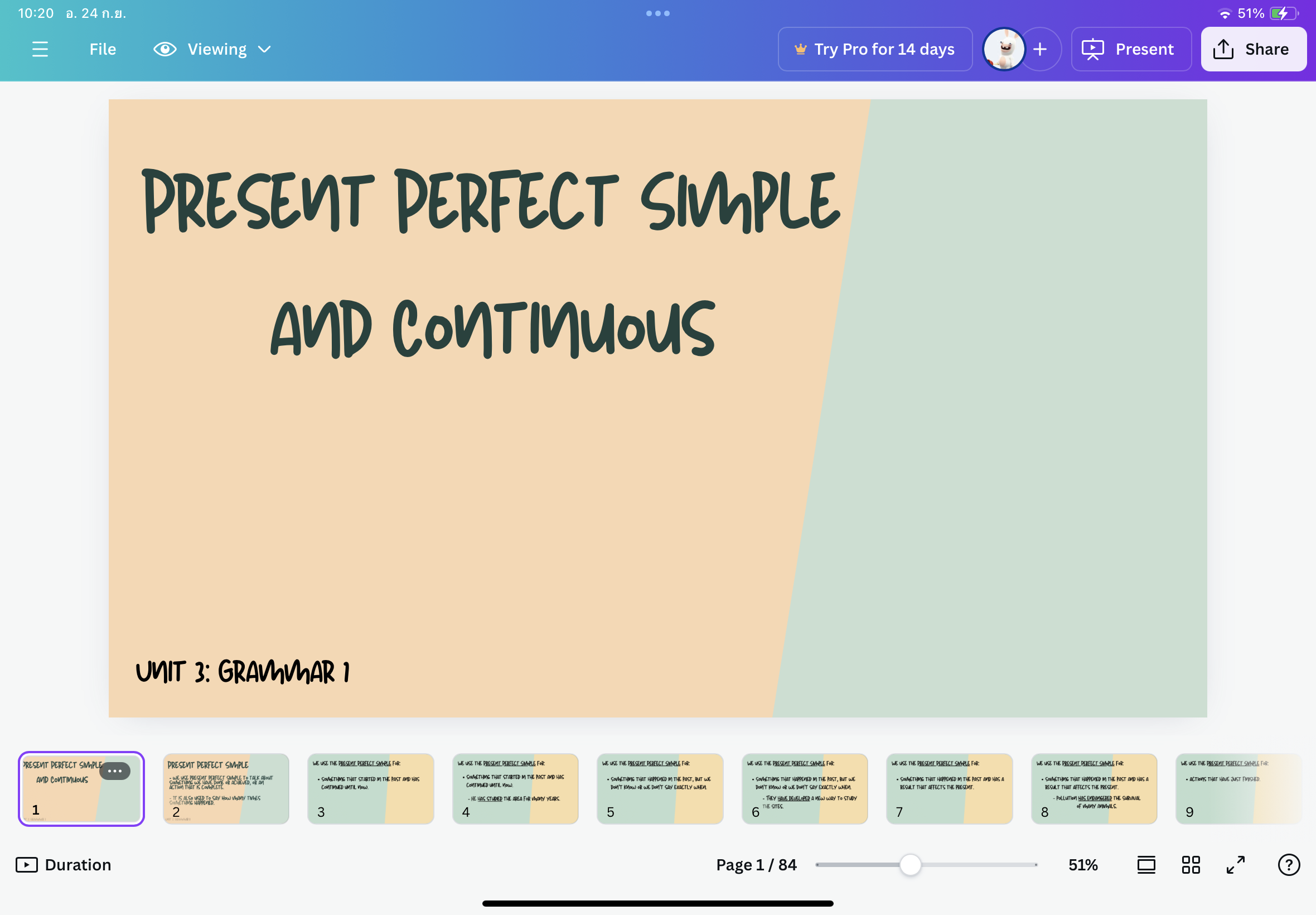What is the difference between present perfect simple and present perfect continuous?

Understand the Problem
The question seems to refer to grammatical structures related to the present perfect simple and continuous tenses in English. It is likely asking for explanations or examples of these grammatical forms.
Answer
Present perfect simple: completion/results; Present perfect continuous: ongoing/duration.
The present perfect simple focuses on the completion and results of an action, while the present perfect continuous emphasizes the ongoing nature or duration of an action.
Answer for screen readers
The present perfect simple focuses on the completion and results of an action, while the present perfect continuous emphasizes the ongoing nature or duration of an action.
More Information
The present perfect simple and present perfect continuous serve different purposes in conveying information about actions. This distinction helps communicate clarity about the state of actions — whether they are completed, how often they have occurred, or if they are still occurring.
Tips
A common mistake is using the present perfect simple instead of the present perfect continuous to describe actions that are still happening. Remember, use the continuous form for ongoing actions.
Sources
- Present perfect simple and continuous | LearnEnglish - British Council - learnenglish.britishcouncil.org
- contrast: present perfect continuous vs present perfect simple - oxfordlearnersdictionaries.com
- Present Perfect Simple or Present Perfect Continuous Tense? - perfect-english-grammar.com
AI-generated content may contain errors. Please verify critical information